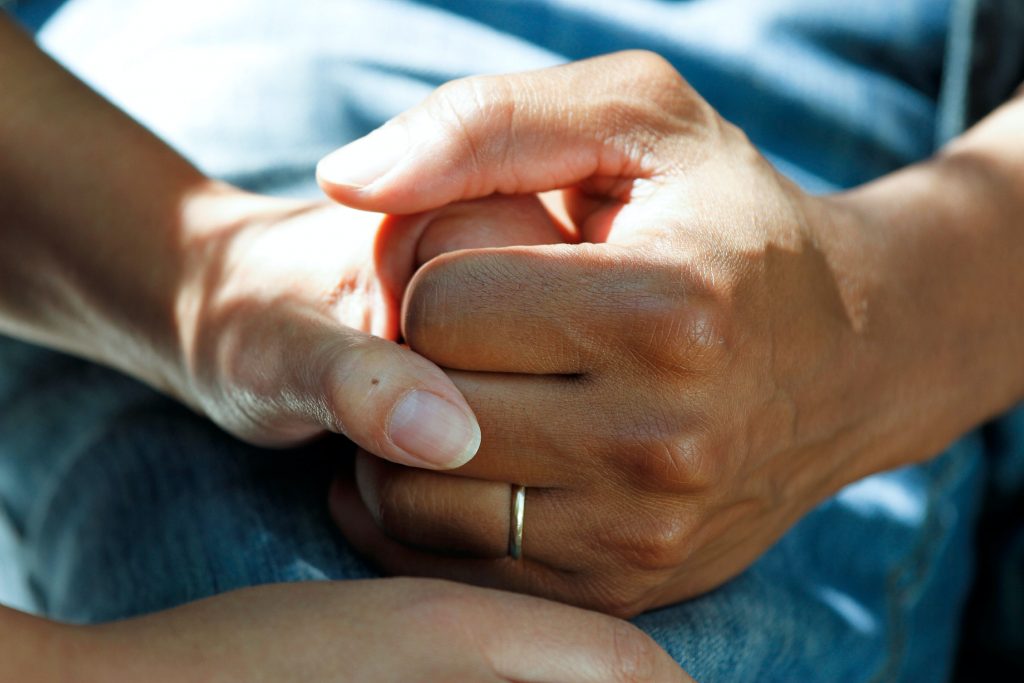Rachel Cable urges Welsh Government to not only recognise the value of carers, but to reward them.
As a society, we have been aware of the people quietly caring for sick or disabled loved ones at home. We have also been aware of the people whose job it is to provide vital care for others, in childcare settings, in care homes, or in peoples own homes across our communities.
However, when it comes to deciding what to value – who to give support to, who to pay well – they have been conveniently overlooked. Coronavirus has brought the difficulties these groups face, and their value to society into sharp focus.
Up until now, we have turned a blind eye to the poverty that some carers have faced and failed to challenge the view that caring is ‘women’s work’, leaving carers undervalued and under-rewarded. They have been let down by an inadequate social security system and in the paid care sector they receive poverty wages and insecure contracts.
This has left many carers trapped in poverty as a reward for the vital work they do, paid and unpaid, in our homes and communities.
We can no longer in good conscience ignore the poverty they face. Oxfam knows, from our international work as well as our work in Britain that there is a direct link between caring and poverty and that women are the hardest hit.
Care, paid and unpaid is overwhelmingly performed by women and girls and this is especially the case for those who experience discrimination based on ethnicity, nationality and age.
Across Wales many people have taken on new caring responsibilities as a result of the pandemic, and of course there are countless parents, often women, who have had to plug the gap caused by schools and childcare facilities closing.
Many people for the first time are realising the impact of caring on their incomes, as new caring responsibilities have meant people giving up or reducing their working hours and struggling to navigate a complex and inadequate social security system.
People are naturally worried about the health and safety of their loved ones and this combined with intolerable financial pressure is unfortunately all too familiar to those caring prior to the pandemic, and is likely to be heightened as carers struggle to cope with the added pressures of lockdown and shielding.
Paid care workers, in care homes, childcare settings and in people’s homes have found themselves under similar pressure as they face contracting coronavirus themselves.
We know the contribution carers make to society and the economy, in fact in the early weeks it became very clear that they truly are delivering key work.
Now governments need to act. While many of the solutions to the scandal of carer poverty lie at Westminster there is much that the Welsh Government can do to protect carers from poverty.
While some unpaid carers in Scotland are getting a much-needed one-off COVID-19 cash boost from the Scottish Government, carers in Wales will miss out. All carers need a sustained commitment that they will always have enough money to live on, with governments across Britain working together to achieve it.
Last summer, Ministers said they were considering expanding the free early years childcare offer to parents in education or training, and those on the cusp of returning to work.
Welsh Government must ensure that initiatives like these are not forgotten as a result of the pandemic, and are in fact strengthened to further support people in escaping poverty.
For paid care workers in Wales there has been a welcome one off £500 extra payment for social care staff, but more needs to be done to ensure that care workers are paid at least the real living wage.
It’s clear that Wales’s social care system needs a big cash injection to ensure its workers are properly rewarded, and that in the longer term the lack of a career structure for social care workers are addressed.
Welsh Government has developed a social care levy proposal that would provide funding for both the immediate costs of care, and for the expected increased demand for care in future. Given the context of the coronavirus pandemic, this proposal should be fast-tracked, with appropriate modelling done to ensure it’s fair.
Some of the funding from this levy should be allocated to giving the social care workforce decent work. This would lift many paid carers out of poverty, ensure better quality of care for people being cared for, as well as offering much needed relief and support for those providing them unpaid care.
The Welsh Government is rightly already thinking about what a fair and environmentally friendly recovery from the pandemic looks like, but it must also be a caring recovery.
We need to think differently about how we value those whose job it is to look after others, whether unpaid at home or paid in our communities.
It is not enough for us to see their value – we must act to support and reward them. This means we can no longer turn a blind eye to the poverty that carers face.





